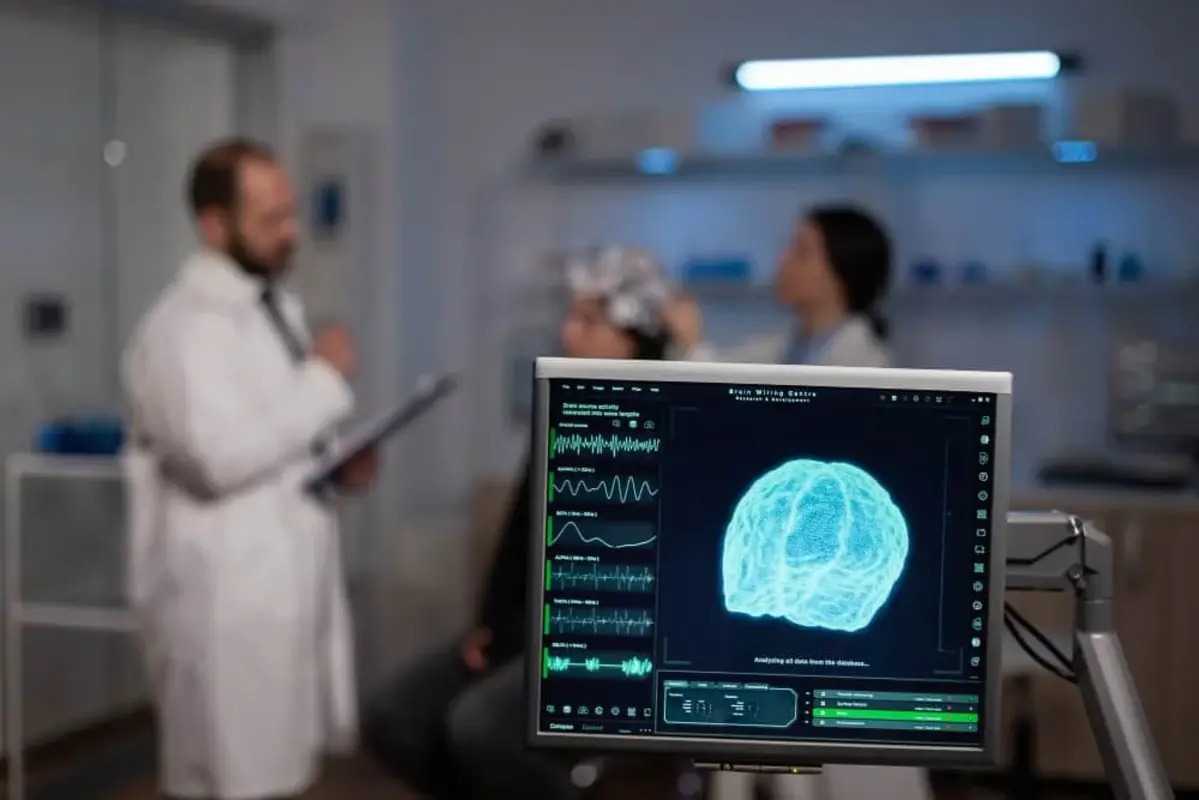Understanding Focal Neurological Signs: What Your Body Might Be Trying to Tell You
It started with something small.
Mr. Davis, a retired school principal, was enjoying his morning coffee when he noticed his right hand trembling. He reached again, but couldn’t grip the cup properly. A few minutes later, his speech began to slur. What he didn’t realize at the time was that he was experiencing focal neurological signs – specific symptoms that point to a problem in one area of the brain or nervous system.
These signs, often subtle at first, can be early warnings of serious medical conditions like stroke, brain tumors, or neurological infections. Thankfully, his wife recognized that something wasn’t right and rushed him to the hospital-where those signs helped doctors act fast and possibly save his life.
In this article, we’ll explain what focal neurological signs are, why they matter, and how our neurology department uses them to catch serious issues early. This isn’t just about medical terms-it’s about real people, real stories, and real lives being saved by noticing the signs in time.
What Are Focal Neurological Signs?
Focal neurological signs are specific symptoms that occur due to damage or dysfunction in a particular part of the nervous system, such as the brain, spinal cord, or peripheral nerves.
These signs are different from general symptoms like fatigue or dizziness because they tell doctors where to look.
Common examples of focal neurological signs include:
- Weakness or paralysis on one side of the body
- Loss of vision in one eye or half of the visual field
- Slurred speech or trouble speaking clearly
- Facial drooping on one side
- Sudden loss of coordination or balance
- Tingling, numbness, or seizures in one part of the body

Why Focal Neurological Signs Are Crucial in Early Diagnosis?
Focal neurological signs give doctors essential clues-they’re like a built-in GPS system pointing to where something’s wrong.
Let’s return to Mr. Davis. His symptoms pointed to the left side of his brain’s motor cortex, which controls movement on the right side of the body. A quick brain scan revealed a small blood clot. Because his symptoms were caught early, he received treatment that prevented permanent damage.
How Focal Signs Help Differentiate Conditions?
Focal neurological signs are used to tell conditions apart:
- Stroke vs. Seizure – Both may cause sudden changes, but focal weakness after a stroke typically lasts longer.
- Tumor vs. Inflammation – Slow-growing tumors often cause progressive symptoms, while infections might trigger faster changes.
- Localized vs. Systemic Issues – If the problem is limited to one area, doctors suspect a focal cause rather than a body-wide illness.

How Neurologists Examine Focal Neurological Signs?
When a patient shows possible focal signs, a structured evaluation begins.
Step-by-Step Approach Used in Hospitals:
- Neurological Examination
The neurologist checks your muscle strength, reflexes, speech, balance, vision, and more. This helps locate which part of the brain or spinal cord is affected. - Brain Imaging (MRI or CT scan)
These scans show areas of the brain where there may be bleeding, swelling, or tumors. - Additional Tests
- EEG (electrical brain activity) for seizure-related signs
- Blood tests for infections or autoimmune issues
- Lumbar puncture if an infection like meningitis is suspected
The focus is to identify the cause behind the focal neurological signs and treat it quickly.
Medical Conditions Often Linked to Focal Neurological Signs?
Several conditions are commonly associated with focal signs. Recognizing them helps doctors deliver fast, accurate care.
Conditions That Commonly Present s are:
- Stroke – Often sudden, with facial droop, speech trouble, and weakness on one side.
- Brain Tumor – May cause slow-developing symptoms like memory issues, vision changes, or seizures.
- Multiple Sclerosis (MS) – Can lead to temporary or permanent sensory or motor issues.
- Epilepsy – Seizures may begin in a specific area, causing repeated jerking or loss of sensation.
- Brain Infections – Focal signs combined with fever and confusion may suggest a brain abscess or encephalitis.

Real-Life Story: Small Focal Signs, Big Impact
Sofia, a 32-year-old teacher, kept dropping things with her left hand. She thought it was due to stress. After a gentle push from her partner, she visited the ER.
The neurologist noticed weakness isolated to her left side. A brain scan revealed a small benign tumor pressing on her motor cortex. Because she sought care early, she had a quick surgery and fully recovered.
Her story highlights how even mild focal neurological signs can point to something serious-and treatable.
When to Worry: Focal Neurological Signs You Shouldn’t Ignore
Here are some signs that mean it’s time to call for medical help right away:
- Sudden one-sided weakness or numbness
- Difficulty speaking or understanding speech
- Loss of vision in one eye or visual field
- Sudden imbalance, dizziness, or falls
- Facial droop
Seizures or jerking in one limb
Use the FAST Test to Check for Stroke:
- Face: Is one side drooping?
- Arms: Can they raise both arms?
- Speech: Is their speech slurred or strange?
- Time: If yes, call emergency services immediately.
Time is critical-delays can mean greater brain damage or long-term disability.
What You Can Do
You don’t need medical training to help save a life. Here’s how you can respond:
- Know the signs: Learn and remember the symptoms we’ve outlined.
- Act fast: Don’t wait to see if it goes away-seek care immediately.
- Take note of when it started: Timing helps doctors figure out what’s going on.
- Encourage loved ones to get checked: Especially if they show subtle or unusual behavior changes.
How Our Neurology Team at Shifa Hospitals Handles Focal Neurological Signs
When patients arrive at Shifa Hospitals, showing focal neurological signs-like sudden weakness, slurred speech, or one-sided numbness-our expert team moves swiftly. Leading this care is Dr. Alagesan, a seasoned Consultant in Neurology with over 26 years of experience in neuro medicine and 30 years in internal medicine.
Here’s how the response unfolds:
- Emergency physicians promptly identify symptoms and activate the stroke or neuro emergency protocol if needed.
- Dr. Alagesan, with his deep expertise in neuro emergencies and diagnostics, conducts a detailed neurological assessment and orders advanced imaging like MRI or CT scans.
- Radiologists work closely with the neurology team to interpret scans, identifying strokes, tumors, or brain swelling with speed and accuracy.
- A personalized treatment plan is created-this may include medications, surgery, rehabilitation, or specialty clinic referrals (such as headache, epilepsy, or stroke clinics).
Thanks to Dr. Alagesan’s leadership and a collaborative, multi-disciplinary approach, patients receive timely, expert care from the moment they enter the hospital.
Conclusion
Focal neurological signs may seem minor at first-a weak hand, a slurred word, or blurry vision-but they often signal the beginning of something serious. At Shifa Hospitals, Tirunelveli, under the care of Dr. Alagesan, these signs are never ignored-they’re the first step toward life-saving diagnosis and treatment.
If you or a loved one notices any unusual neurological symptoms, don’t wait. Early action can make all the difference. Book a consultation with Dr. Alagesan, available Monday to Saturday, 11:00 AM to 2:00 PM, and take that first, critical step toward recovery and peace of mind.
Consultant – Neurology
Shifa Hospitals
